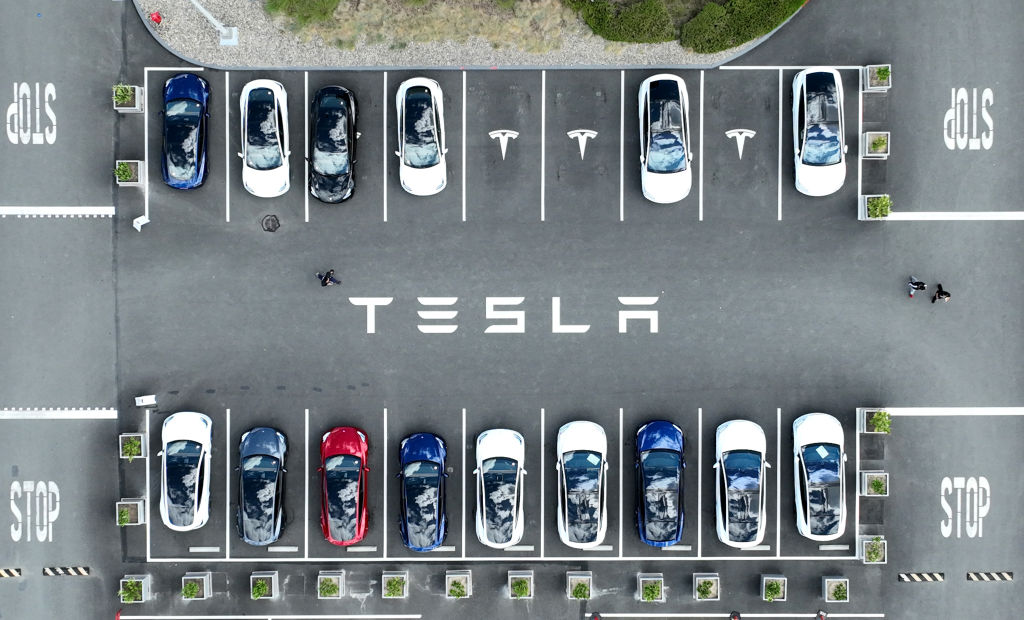Starting in the 1980s, European automakers steadily conquered China, racking up millions in sales with little local competition.
Now they’ll have to defend their home turf in Europe from an onslaught of formidable Chinese electric vehicles.
Chinese EV titans, Chery and Great Wall Motor (GWM) are preparing a fusillade of product launches – about 20 over the next five years – and spending heavily on sales and marketing in their most important export market, according to Reuters interviews with 18 China auto executives, consultants and industry experts familiar with the Chinese automakers’ European strategy.
After several years of swiping market share from foreign rivals in its domestic market, the world’s largest, China’s increasingly potent EV industry is ready to take the fight to Europe.
Chinese electric-vehicle makers have studied European car-buyers for years, hiring industry veterans and selecting distributors with extensive local knowledge as they laid the groundwork to take on Tesla and legacy automakers, the sources said. BYD and Chery have already announced plans to manufacture cars in Europe.
Chinese carmakers are now deploying a range of tactics to break into the market, ranging from sponsoring high-profile sporting events to raise awareness of their brands, to building out their dealership networks, and shoring up service-and-repair operations to protect resale values – a key requirement of fleet buyers who make up a large share of the European market.
Chinese automakers’ European sales remain small because their brands are little-known to consumers — with the exception of MG, a former British brand owned by SAIC, a state-owned Chinese automaker.
But deliveries are growing rapidly and could surge with the release of additional models across a broad range of price segments, industry experts said. BYD saw its Europe sales triple to 15,000 vehicles in 2023 after years of exponential EV sales growth in China and other export markets.
BYD has launched six electric models in Europe and a spokesman said the company is rolling them out across 20 countries. It launched its first three models in the United Kingdom last year and plans two more this year, said BYD’s UK marketing manager, Mark Blundell.
Great Wall plans to launch a model a year in Europe for the next five years, two distributors told Reuters. Chery will launch a total of eight SUV models under two brands, Omodo and Jaecoo, over the next two years, said Chery’s European managing director, Jochen Tueting.
By comparison, Tesla has just two volume-sellers – the mid-priced models 3 and Y. Both are overdue for a redesign and declining in global and European sales.
Christina Bu, of the Norwegian EV Association, which represents 120,000 EV owners, has met with many Chinese automakers and noted some have spent years planning their European strategy. Norway is a global leader in EV adoption.
COST ADVANTAGES
China’s auto industry, a mix of state-owned and private firms, has major cost advantages over foreign competitors in part because of government subsidies and the nation’s dominance of battery-minerals refining.
In China, the explosion of EV brands has ignited a price war, with automakers led by BYD selling a slew of EVs priced between $10,000 and $30,000.
Those rock-bottom prices have alarmed automakers and their political allies in the United States and Europe. In May, U.S. President Joe Biden quadrupled tariffs on Chinese EVs to 100%. The European Union is currently investigating China subsidies and may soon raise tariffs on its cars.
But European auto executives said at a Reuters event in May that higher tariffs will do little to protect them from Chinese EVs unless Europe’s industry acts quickly to match their price and value.
So far, China automakers are not deeply undercutting foreign rivals. Instead, they’re maximizing profits on exports by charging double or more, compared to the China price, for the same vehicles.
Their Europe prices are just slightly below comparable models from western automakers, but the Chinese vehicles are often stuffed with standard-equipment goodies — such as heated-and-cooled seats, 360-degree cameras, digital dashboards — that often cost extra in competitors’ vehicles.
Japanese automakers used similar tactics when expanding into western markets decades ago.
LONG-TERM INVESTING
As they expand exports, Chinese automakers are implementing complex strategies to increase their appeal to European customers.
They have improved their safety ratings, they’ve strengthened repair-and-service operations and distribution, bolstering resale values, which are particularly important for people who lease cars.
Leasing companies charge lower monthly payments for cars with high resale value because they’re worth more at the end of the lease term, when buyers can choose to either buy them or return them to the leasing firm.
Chinese EV makers’ attention to detail reflects what they’ve learned about European consumers, said Bo Yu, Greater China country manager for JATO Dynamics, a UK-based automotive industry research firm.
Ben Townsend, head of automotive at insurance industry-funded safety group Thatcham Research, has been working for the past year with Chinese automakers.
Beyond the obvious moves, like complying with safety regulations and winning high safety ratings, Townsend said, the Chinese exporters are delving into far more complex questions of how to structure warranties and price repairs in Europe, which has much higher service labor costs than China.
The Chinese players are taking a comprehensive look at what constitutes long-term success in Europe, said Toby Marshall, managing director at vehicle distributor IM Group, who manages GWM’s ORA brand in the UK.
IM Group has previously launched a slew of new brands in Britain, including South Korea’s Hyundai and Japan’s Subaru.
Ensuring ready access to affordable spare parts is vital. Marshall said GWM’s UK ORA distributor can provide most parts within 24 hours. And SAIC’s MG has said it will open a second European parts center this summer to support growing vehicle demand.
Another critical effort is courting fleet consumers, which control an unusually large share of European auto sales. For instance, Ayvens, Europe’s largest leasing company, already has partnerships with BYD and Geely.
Unlike Tesla, which has undercut its resale values by repeatedly reducing retail prices, Chinese automakers are working with companies like Autovista, which conducts extensive “car-to-market” studies to set optimal residual values for leasing customers.
(Reuters)




















